A lot about skills and employment in the “mini-budget” this week. There is quite a lot on the “poor quality courses” debate, and on the financial impact of the virus on young people and on universities. Plus some regulatory changes that are starting to look ominous…
A Universities Minister who thinks people shouldn’t bother going to University?
Amidst ongoing rhetoric over allegedly poor quality courses and poor student outcomes (we reported on the Minister’s speech last week) and we report on the debate in the House of Lords below which included some strong lines, including this one from Lord Blencathra:
- “.. we have about 30 useless universities at the bottom end of the quality tables. They are taking fees from students for worthless courses which will not get them jobs, and the fees will never be repaid.”
This week Wonkhe have made it their mission to find these courses – they conclude the data doesn’t bear this out. Not least because past performance isn’t necessarily any indication of future performance in the jobs market or at a university. A course whose students may indeed have had poor outcomes 10 years ago might, or perhaps would almost certainly, have changed by now (or what have the QAA, OfS etc been doing all this time and where is the impact of the TEF?). Of course, the rhetoric muddles institutional outcomes, subject outcomes and the outcomes of particular courses. It ignores regional disparities in employment opportunities and he different demographic of the students who attend each university. It also (my pet peeve, as you will know if you read this blog often) assumes that you can look at courses this way because the progression between courses and jobs is linear and therefore all social sciences students go on to have (potentially low earning) careers in community work, so it’s easy, just stop subsidising social sciences. In fact some of them become Secretaries of State for Education – strange how they forget. Would it have made a difference to his career earnings if Gavin Williamson had studied engineering? If you think that’s a silly question, that’s my point!
There have been numerous social media and newspaper blogs addressing Michelle’s unfavourable speech last week (delivered at a disadvantaged access conference too). One does wonder if it was just the clumsiness of her speech writers but it’s probably unfair to blame them. Did she really intend to suggest universities were dumbing down so they could admit disadvantaged students – or was it a general ‘bums on seats’ dig gone wrong?
Wonkhe have long said that Whitehall dislike their Ministers cosying up to the sector – think Chris Skidmore, David Willetts, and even Sam Gyimah did try (though it didn’t really work for the self styled Minister for Students). Donelan is certainly keen to show herself to toe the party line, and we know the refocus on technical education and FE support is coming (and contrary to Augar’s recommendations) will likely result in some level of defunding of HE.
So where does this leave the widening participation agenda? If we listen to the Government or media it seems the sector is to blame, despite the new, stringent Access and Participation Plans rigorously overseen by the OfS (whose golden status also appears to be slipping). Shifting the focus away from the prospective students themselves and shoving them into a deficit model where universities must ‘do’ to correct the disadvantage in their lives. … Are they planning to stop contextual admissions (note they are still allowed under the new OfS licence condition)?
Just one example,, of the sector push back against Donelan’s speech is found in the gently disappointed Guardian article penned by Chris Husbands (VC Sheffield Hallam)
- My personal history, and my family’s experience, make me very worried when government ministers lose faithin the power of universities to transform lives.
- When pushed, very few politicians or journalists can actually identify these courses which “do nothing” or are “low value”.
- They are odd lines, because they contradict the government’s own ambitions. Michael Gove laid it out for them just a few days before: a future built around “big data, machine learning, artificial intelligence, robotics and further automation, 3D printing, quantum computing”, along with “genetic sequencing and screening, gene editing and other life science and biotech advances”.
- The 21st century world is a knowledge-led world. Value is generated not through low- or mid-level skills but economic, social and technological transformation. It’s universities which are our best bet for the future because they produce advanced knowledge and research. That’s why all the world’s advanced economies are investing in higher education.
Wonkhe tell us that “Gavin Williamson is expected to give a speech designed to flesh out the government’s post-18 strategy. But don’t expect to like what you hear.”
- Mark Leach argues that government HE policy is as confused and contradictory as it has ever been.
- Jim Dickinson assesses how OfS might respond to ministerial missives on value. Jim looks at continuation, which we know is a big red flag for the government (used in the recent student number controls as a filter), and predicts the OfS are about to get to work raising baseline standards, as they said they would.
- Alex Blower reflects on a speech to widening participation professionals and concludes that the minister failed to read the room.
- Guardian rebalancing tertiary education away from HE sector.
Budget
You’ll have read the analyses of the mini budget in the press. Apart from stamp duty, green homes vouchers, “eat out to help out” and the VAT cut for food and non-alcoholic drinks, it was mostly focussed on jobs – retaining and creating new ones, with a particular focus on young people.
It was not expected that there would be any announcements about HE, so we should not feel disappointed – this is all about skills and jobs for those who were not planning to go to university in September and face unemployment.
Apart from the headlines, the details are here.
- Job Retention Bonus – The government will introduce a one-off payment of £1,000 to UK employers for every furloughed employee who remains continuously employed through to the end of January 2021. Employees must earn above the Lower Earnings Limit (£520 per month) on average between the end of the Coronavirus Job Retention Scheme and the end of January 2021. Payments will be made from February 2021. Further detail about the scheme will be announced by the end of July.
- Kickstart Scheme – The government will introduce a new Kickstart Scheme in Great Britain, a £2 billion fund to create hundreds of thousands of high quality 6-month work placements aimed at those aged 16-24 who are on Universal Credit and are deemed to be at risk of long-term unemployment. Funding available for each job will cover 100% of the relevant National Minimum Wage for 25 hours a week, plus the associated employer National Insurance contributions and employer minimum automatic enrolment contributions.
- New funding for National Careers Service – The government will provide an additional £32 million funding over the next 2 years for the National Careers Service so that 269,000 more people in England can receive personalised advice on training and work.
- High quality traineeships for young people – The government will provide an additional £111 million this year for traineeships in England, to fund high quality work placements and training for 16-24 year olds. This funding is enough to triple participation in traineeships. For the first time ever, the government will fund employers who provide trainees with work experience, at a rate of £1,000 per trainee. The government will improve provision and expand eligibility for traineeships to those with Level 3 qualifications and below, to ensure that more young people have access to high quality training.
- Payments for employers who hire new apprentices – The government will introduce a new payment of £2,000 to employers in England for each new apprentice they hire aged under 25, and a £1,500 payment for each new apprentice they hire aged 25 and over, from 1st August 2020 to 31st January 2021. These payments will be in addition to the existing £1,000 payment the government already provides for new 16-18 year-old apprentices, and those aged under 25 with an Education, Health and Care Plan – where that applies.
- High value courses for school and college leavers – The government will provide £101 million for the 2020-21 academic year to give all 18-19 year olds in England the opportunity to study targeted high value Level 2 and 3 courses when there are not employment opportunities available to them.
- Expanded Youth Offer – The government will expand and increase the intensive support offered by DWP in Great Britain to young jobseekers, to include all those aged 18-24 in the Intensive Work Search group in Universal Credit.
- Enhanced work search support – The government will provide £895 million to enhance work search support by doubling the number of work coaches in Jobcentre Plus before the end of the financial year across Great Britain.
- Expansion of the Work and Health Programme – The government will provide up to £95 million this year to expand the scope of the Work and Health Programme in Great Britain to introduce additional voluntary support in the autumn for those on benefits that have been unemployed for more than 3 months. This expansion will have no impact on the existing provision for those with illnesses or disabilities in England and Wales.
- Job finding support service – The government will provide £40 million to fund private sector capacity to introduce a job finding support service in Great Britain in the autumn. This online, one-to-one service will help those who have been unemployed for less than three months increase their chances of finding employment.
- Flexible Support Fund – The government will increase the funding for the Flexible Support Fund by £150 million in Great Britain, including to increase the capacity of the Rapid Response Service.1 It will also provide local support to claimants by removing barriers to work such as travel expenses for attending interviews. 2.21 New funding for sector-based work academies – The government will provide an additional £17 million this year to triple the number of sector-based work academy placements in England in order to provide vocational training and guaranteed interviews for more people, helping them gain the skills needed for the jobs available in their local area.
More detail is also provided on measures announced by the PM on 30th June.
There are some research-related announcements.
- Office for Talent – The government will create a new Office for Talent based in No.10, with delivery teams across government departments. The Office will focus on attracting, retaining and developing top research and science talent across the UK and internationally.
- Direct Air Capture – The government will provide £100 million of new funding for researching and developing Direct Air Capture, a new clean technology which captures CO2 from the air.
- Automotive Transformation Fund – Building on the announcement last year of up to £1 billion of additional funding to develop and embed the next generation of cutting-edge automotive technologies, the government is making £10 million of funding available immediately for the first wave of innovative R&D projects to scale up manufacturing of the latest technology in batteries, motors, electronics and fuel cells. The government is also calling upon industry to put forward investment proposals for the UK’s first ‘gigafactory’ and supporting supply chains to mass manufacture cutting-edge batteries for the next generation of electric vehicles, as well as for other strategic electric vehicle technologies.
- World-class laboratories – The government will provide a £300 million investment in 2020-21 to boost equipment and infrastructure across universities and institutes across the UK
Guardian report on the new Office for Talent.
NHS investment
- NHS maintenance and A&E capacity – The government will provide £1.05 billion in 2020-21 to invest in NHS critical maintenance and A&E capacity across England.
- Modernising the NHS mental health estate – The government will provide up to £250 million in 2020-21 to make progress on replacing outdated mental health dormitories with 1,300 single bedrooms across 25 mental health providers in England.
- Health Infrastructure Plan – The government will provide a further £200 million for the Health Infrastructure Plan18 to accelerate a number of the 40 new hospital building projects across England.
And on the education estate (not HE):
- Further Education (FE) estate funding – Building on the £1.5 billion commitment for FE capital funding made at Budget 2020, the government will bring forward £200 million to 2020-21 to support colleges to carry out urgent and essential maintenance projects. This will be the first step in the government’s commitment to bring the facilities of colleges everywhere in England up to a good level.
- School estate funding – The government will provide additional funding of £560 million for schools in England to improve the condition of their buildings and estates in 2020-21. This is on top of the £1.4 billion already invested in school maintenance this year.
- School rebuilding programme – The government has announced over £1 billion to fund the first 50 projects of a new, ten-year school rebuilding programme in England. These projects will be confirmed in the autumn, and further detail on future waves will be confirmed at the Comprehensive Spending Review. Construction on the first sites will begin in September 2021.
LEP funding for local infrastructure:
- Local infrastructure projects – The government will provide £900 million for shovelready projects in England in 2020-21 and 2021-22 to drive local growth and jobs. This could include the development and regeneration of key local sites, investment to improve transport and digital connectivity, and innovation and technology centres. Funding will be provided to Mayoral Combined Authorities and Local Enterprise Partnerships.
Budget context
A slightly different response to a PQ about supporting graduates through the gloomy economic outlook from the Universities Minister:
Douglas Chapman: To ask the Secretary of State for Education, what plans he has to support graduates looking for employment (a) during and (b) after the covid-19 outbreak.
Michelle Donelan:
- Our economic priority is to mitigate the impact of COVID-19 on our economy as far as possible. This is an incredibly difficult period for everyone, and we understand that graduates are likely to feel concerned as they enter a far tougher job market than those before them.
- Some universities are going above and beyond to support those graduating this summer, providing extensive online careers advice, including webinars offering interview and CV-writing tips and skills and follow-up one-to-one calls. However, we need all universities to step up and play a key role to help graduates take the next step, whether into work or further study.
- The recently announced National Tutoring Programme creates an opportunity for graduates to apply for tutoring roles providing support for pupils and schools in the most disadvantaged areas. More details of the programme will be available shortly.
- We know that post-graduates often secure employment in higher skilled and higher paid employment than graduates and non-graduates. The government can support with the financial burden of accessing a master’s degree with a loan of up to £11,222. Where graduates are considering a career in teaching, tax-free postgraduate bursaries of up to £26,000 are available for trainee teachers starting initial teacher training in 2020/21, depending on the subject in which they train to tea
The Institute for Fiscal Studies have published COVID-19 and the career prospects of young people and a report on the ‘Prolonged cost’ to young people from COVID-19 career disruption.
The new IFS research, funded by the Turing Institute, shows that the COVID-19 pandemic threatens to severely disrupt the career progression of young workers, suggesting that negative economic impacts on this age group may last well beyond the easing of the lockdown. The new research finds that:
- Over the last decade, young people starting out in the labour market have increasingly been working in relatively low-paid occupations, many of which are in sectors hardest hit by the COVID-19 crisis – for example, hospitality and non-food retail.
- The growing importance of those ‘lockdown sectors’ as employers of workers at the start of their careers is primarily due to an expansion of the accommodation and food industry. The share of workers starting their careers in this sector increased by about 50%, from 6% to 9%, between 2007 and 2019.
- As other sources of wage growth have dried up, young workers have become increasingly reliant on moving into higher-paying occupations as a source of early-career wage growth. Around 28% of wage growth over the first five years of the careers of workers born in the 1970s could be attributed to moving into a higher-paying occupation. This had risen to 50% or more among people born in the 1980s.
- The pandemic threatens to have a prolonged negative economic impact on young people by reducing demand for the jobs that are typical among early-career workers and making it harder for workers to find better opportunities than their current jobs.
- The government should have a particular focus on the challenges facing the young as it attempts to manage the labour market impacts of COVID-19 in the coming months.
IPPR, the Institute for Public Policy Research has published a report, Guaranteeing the Right Start, Preventing Youth Unemployment after COVID-19.
- There is a strong case for bold policy interventions to prevent youth unemployment. Becoming NEET results in a ‘scarring effect’ that lowers long-term employment prospects and earning potential (Gregg and Tominey 2004). Furthermore, those from the poorest backgrounds and with the lowest qualifications are likely to be the worst affected (Henehan 2020). Each person that is out of work and education for six months or more costs on average £65,000 in direct lifetime costs to public finances and £120,000 in wider lifetime costs to the economy and community (Coles et al 2010). But ultimately becoming unemployed is a deep personal crisis with impacts on health, self-worth, identity and status.
- We recommend the creation of a new ‘Opportunity Guarantee’ for young people: the government should ensure that every young person is either in education or work. The government’s main aim in the short term should be to prevent a rise in youth unemployment as a result of the Covid-19 crisis. But, looking beyond the crisis, they should be aiming even higher: to eliminate all but the most temporary experience of being NEET amongst all young people. This will require government to keep young people in education for longer – but more radically, it also demands a fundamental rethink of labour market policy in the UK (the focus of this paper). This programme should be spearheaded by the prime minster as part of a campaign to inspire businesses to ‘do their bit’, by hiring young people during the crisis as part of an ‘investment in the future of our nation’.
- Fulfilling this promise will require a new, more active, approach to labour market policy. In recent decades, the UK has embraced a liberal welfare regime, meaning a flexible labour market with limited government intervention, and a welfare system designed to promote ‘work first’ through low replacement rates, conditionality and sanctions. This approach is always questionable, but it is particularly problematic in an environment of high and persistent unemployment. We must now take a more empathetic and interventionist approach, drawing on the Active Labour Market Policies (ALMPs) used more extensively elsewhere. If the UK spent the same proportion of GDP on these policies as other advanced European countries, we would invest £8.5 billion more a year in preventing unemployment. Some of these measures are outlined in this paper but government must also take action for older people as well, for example, through reforming and extending the Coronavirus Job Retention Scheme.
Financial sustainability
And continuing the financial theme, the Institute for Fiscal Studies has published a briefing entitled Will universities need a bailout to survive the COVID-19 crisis? The briefing note examines the resilience of university finances to the likely consequences of the COVID-19 outbreak and the public health response to it.
- The total size of the university sector’s losses is highly uncertain: we estimate that long-run losses could come in anywhere between £3 billion and £19 billion, or between 7.5% and nearly half of the sector’s overall income in one year. Our central estimate of total long-run losses is £11 billion or more than a quarter of income in one year.
- The biggest losses will likely stem from falls in international student enrolments (between £1.4 billion and £4.3 billion, with a central estimate of £2.8 billion) and increases in the deficits of university-sponsored pension schemes, which universities will eventually need to cover (up to £7.6 billion, with a central estimate of £3.8 billion). In addition, the sector faces lockdown-related losses of income from student accommodation and conference and catering operations, as well as financial losses on long-term investments.
- Large sector-level losses mask substantial differences between institutions. In general, institutions with a large share of international students and those with substantial pension obligations are most affected. These tend to be higher-ranking institutions as well as postgraduate and music & arts institutions. Some of the least selective universities, which rely largely on domestic fee income, will also be badly hit if higher ranked universities admit more UK students to make up for the shortfall in their international enrolments. While recently introduced student number caps will constrain some of this behaviour, there are still likely to be falls in student numbers at the least selective institutions.
- Universities are unlikely to be able to claw back a large portion of these losses through cost savings unless they make significant numbers of staff redundant. In our central scenario, we estimate that cost savings could reduce the overall bill by only £600 million or around 6% without redundancies. The potential for cost savings varies across universities: institutions with a larger proportion of temporary staff will likely be able to make larger savings, but this may impact teaching quality
- For the university sector as a whole, net losses in our central scenario are only slightly larger than five years of surplus at the pre-crisis level. Assuming that the underlying profitability of universities remains unchanged, the total financial reserves of the higher education sector could still be roughly the same in 2024 as they were in 2019, even without a government bailout.
- Whether COVID-related losses put a given institution at risk of insolvency largely depends on its profitability and its balance sheet position before the crisis, rather than on its predicted losses from COVID-19. The institutions with the highest predicted losses all have large financial buffers and are therefore at little risk of insolvency. The institutions at the greatest risk tend to have smaller predicted losses, but had already entered the crisis in poor financial shape.
- In our central scenario, 13 universities educating around 5% of students would end up with negative reserves and thus may not be viable in the long run without a government bailout or debt restructuring. A very tightly targeted bailout aimed at keeping these institutions afloat could cost around £140 million. In comparison, a one-off increase in teaching grants of £1,000 per UK/EU student would cost £1.8 billion but in our central scenario would only push three institutions above the line of zero reserves.
- There is considerable uncertainty over actual risks to institutions and a trade-off between highly targeted and more general support. And additional support might not be aimed purely at preventing insolvencies. But there is a big gap in cost between a very targeted bailout costing perhaps less than £200 million and the more generalised bailout proposed by Universities UK, which would cost £3.2 billion and at the same time provide very little support to most universities that appear to be most at risk of insolvency; according to our modelling, only two institutions would be pushed above the line of zero reserves by this proposed policy. Government will need to be very clear about the purpose of any bailout package and design it accordingly.
- Lightly regulated Alternative Providers educate around 3% of all students in the higher education sector. Many of these providers have low reserves and rely almost exclusively on tuition fees for their income. Alternative Providers with a large share of international students are at a significant risk of insolvency, potentially leaving students unable to complete their degrees.
Further to this, the Higher Education Policy Institute has published a response to the report. Nick Hillman, the Director of the Higher Education Policy Institute (HEPI), said:
- “The IfS report is as lucid and clear as we have come to expect from them. They are right that universities with more international students and bigger pension liabilities are more directly affected by Covid than others and also that institutions which were financially weak before the pandemic are the ones most at risk of actual insolvency. They are also right that the arguments for extra support for universities in the crisis are strong. But that doesn’t mean they’re right overall.
- “There are three important points to note.
- “First, the range of projected short-term financial losses for universities, which the IfS calculates at between £3 billion and £19 billion, is so enormous that it’s pretty meaningless in terms of planning ahead. It’s such a huge fan of uncertainty that it doesn’t help either universities or policymakers know where they stand.
- “Secondly, there are too many reports around at the moment that take old opinion polls of how students might behave as the gospel truth. We know from when tuition fees in England went to £9k that polls which ask students how they might behave are a woeful guide to the future, and the IfS’s figures on student numbers should therefore be taken with a lorry load of salt.
- “For example, the IfS are assuming there will be 10% fewer UK students, yet the latest UCAS figures show the opposite trend. Who would choose to have a gap year at the moment, when travel and job opportunities are so limited? The IfS are also predicting a 50% drop in EU students as a result of the pandemic, even though 2020 is the last year when they will be treated like home students. Unless there is a major second wave of Covid-19, the IfS’s “central” estimate for the short-term financial losses would be better labelled “pessimistic” and their “pessimistic” estimate would be better labelled “extreme”.
- “Thirdly, the oddest feature of the IfS report is how very little it has to say on university research. When universities have less income and face big deficits, they can opt to stem the financial losses by doing less research as research generally loses money. Less research would be terrible for the UK as it would hamper the post-pandemic recovery. So the quantity of research that institutions can afford must be a bigger part of the wider conversation about university financing.
- “There is a strong case for continuing government support for universities of all types because of the jobs they provide, the education they deliver and the support they provide to employers as well as the research they undertake.”
David Kernohan looks under the bonnet.
But it’s ok, because Lord Willetts says foreign investors will be keen to help out, as reported by Research Professional.
University Admissions
The Office for Students finally unveiled their new licence condition on admissions practices at the end of last week, after a very long delay. The consultation results can be found here.
They have changed the time frame from the original proposal so that it is no longer retrospective to 11th March. It is in place until September 2021 so covers next year’s admissions cycle.
There is a general catch all:
- This condition…. prohibits a provider from engaging in any form of Conduct which, in the reasonable opinion of the OfS, could be expected to have a material negative effect on the Stability and/or Integrity of the English Higher Education Sector
This is interesting because it doesn’t just mean things that any one university does that could on its own have a material negative effect – but takes into account the cumulative negative effect if lots of universities were to do the same thing. Deciding what might be covered by this vague and subjective definition will be an interesting process for anyone planning creative recruitment strategies.
To help the sector they have clarified some things that are definitely banned, and some things that are definitely allowed. As you will see, the gap in the middle is quite big.
Banned
- They have banned all conditional unconditional offers.
- They have banned “false or misleading” claims to persuade people from going to another university (surely this would have been subject to action by the ASA in any case).
Allowed
- the use of an Unconditional Offer in respect of a prospective or existing student who has already attained particular academic achievementswhich are at, or equivalent to, level 3 or above of the Regulated Qualifications Framework;
- the use of an Unconditional Offer in connection withadmissions policies and criteria which wholly or mainly require a prospective or existing student to demonstrate abilities in a practical way (including, but not limited, by any type of live performance or submission of evidence of abilities through videos, drawings, paintings, photographic pictures, audio recordings, or any other tangible object);
- the use of an Unconditional Offer in respect of a prospective or existing student who has already accredited prior learning (APL), or prior experiential learning (APEL), that can be accredited under academic regulations that were made and brought into force by the provider before 1 September 2019;
- the use of an Unconditional Offer in respect of a prospective or existing student who meets all of the following requirements: the student was a private candidate registered to take examinations for A-level qualifications(or other qualifications which are equivalent to level 3 qualifications for the purposes of the Regulated Qualifications Framework) in 2020; and was unable to take examinations for such qualifications before 31 August 2020 due to the coronavirus pandemic or obtain grades for such qualifications on an alternative basis as a result of arrangements put in place by the Office of Qualifications and Examinations Regulation (or, as the case may be, the equivalent body in Scotland, Wales or Northern Ireland); and iii. is seeking admission to a higher education course which will commence before 1 September 2021;
- the use of a Contextual Offer in connection with implementing any policy which could reasonably be considered as having the primary aim of promoting Equality of Opportunity.
It seems fairly clear that the OfS are intending to restrict unconditional offer-making in all but these cases, although they haven’t actually spelled that out.
Nicola Dandridge, Chief Executive of the OfS, said:
- ‘We have previously highlighted that unconditional offers which are conditional on students accepting a university or college as their first choice put pressure on students and distort their decision making. Widespread use of unconditional offers also risks destabilising the system. Our concerns are even more acute in these exceptional times with the shape of the next few months and years still very unpredictable, and information, advice and guidance less readily available than it may normally be.
- ‘However, we have ensured that the condition explicitly permits unconditional and contextual offers that are clearly in students’ interests, and which support the transition into higher education for the most disadvantaged students.
- ‘Students can also be reassured that they should not expect to have any offers that they have already received withdrawn, and where there are good reasons for them to receive an unconditional or contextual offer in future, there is no reason that this cannot go ahead.
- ‘This condition is designed to avoid instability during the current uncertainty, and to protect students and the higher education sector in these extraordinary circumstances: it will not continue past September 2021. This should allay concerns that we wanted to extend our powers permanently, which we have no intention of doing.
- ‘The condition is a necessary and proportionate means to ensure the stability and integrity of the English higher education sector, to protect students’ interests and to preserve a diversity of choice for students into the future.’
An anonymous senior figure in an English university has responded in a HEPI blog:
- Conditional unconditional offers are explicitly ‘prohibited in all circumstances’ but the condition applies to: conduct … which, if repeated by other providers, is likely to have a material negative effect on the stability and/or integrity of the English Higher Education Sector (whether or not there is any form of express or tacit coordination, and whether or not a provider is able to anticipate the actions of other providers).’
- Except for cases where applicants are required to ‘demonstrate abilities in a practical way’ – which are explicitly exempted – I think we can predict the end of all unconditional offer making.
- As the OfS says, a ‘provider needs only to consider the possible negative effects on stability and integrity if other providers did follow suit.’ As the conceptual universe is overflowing with what is possible, it is unlikely that any university will argue that it is not possible that their unconditional offer-making will have negative effects.
- Many within and outside the sector will not lament the passing of unconditional offer-making. Whatever your views on their relative merits, they had become a stick with which to beat us long before the pandemic hit. But hang on; that’s a problem. The original consultation stated that ‘the conduct that the condition seeks to address is specific to the circumstances of the coronavirus pandemic’.
- No one can plausibly claim that the problem of unconditional offers is ‘specific’ to the pandemic. And while there have been worries about the alleged 30,000 unconditional offers made in the first few days of the pandemic, the OfS’s power will not be retrospective. So these will stand.
- Indeed, given the current stage of the recruitment cycle, the new power will have marginal effect on 2020 recruitment. However, as it will last until 30 September 2021, it will apply through next year’s recruitment cycle. And, unless the OfS know something few others do, the new power will apply outside the pandemic.
- One cannot help feeling that the bucket of ordure that was poured over the OfS in response to their original consultation so staggered them that it has taken this long to think of a face-saving way to rescue something from a poorly-argued consultation. Even with grade inflation, it would have warranted no more than a 3rd.
- Still, one should not be ungenerous. The OfS may have done the sector a great favour. Unconditional offers are very much a collective action problem – if one university offers them, so must others. So a centrally-imposed rule is almost certainly the right approach.
- However, one can still legitimately worry about the consultation outcome. The OfS was not consulting on the acceptability of unconditional offers; it was consulting on pandemic-specific conduct. The OfS seems to have used the exercise as cover to do something it has wanted to do for a long time.
Research
REF & Roadmap – Following last week’s announcement on the R&D roadmap which promises to investigate and reduce bureaucracy (and UKRI’s intention to consider overhauling REF after 2021) Wonkhe have a nice blog on how they do it in the Netherlands.
The roadmap also contained public funding pledges which intended to attract domestic and international private investment. BEIS have issued a report describing the ‘leverage’ that can be expected. They’ve also published the analysis of the economic modelling behind the 2.4% R&D target under the Industrial Strategy banner.
And the roadmap itself is still subject to much comment and articles continuing to analyse the nuance behind the words. Daniel Zeichner Co-Chair of the Universities APPG stated:
- [the document was] a curious roadmap—much more of a ramble through a complicated landscape where everything gets a mention.
- Measures to make the UK more attractive to international researchers are welcome, although whether they will undo the self-inflicted harm caused by leaving the European Union, and ill-considered immigration policies, remains to be seen.
- Anyone following this roadmap will doubtless recognise much of what is described but will wonder about the destination—little surprise that at the end, we find that we have finally arrived at the start of a conversation.
Research Lottery – THE report on a consortium (including UKRI) who are experimenting to judge whether funding certain types of research project by random selection would reduce unconscious bias. Professor Wilsdon, Research on Research institute, stated:
- When you are sitting on panels, you can often easily spot the really outstanding applications – or the stuff that isn’t much good – but there is also a middle level of proposals that will probably lead to valuable research where it is very hard to choose between candidates. The distinctions between them are so fine-grain that it is sometimes quite hard to defend why you chose one over another – it is this area where grant funders can be susceptible to implicit bias, whether that is linguistic, institutional or gender bias.
- [Another]…big motivation is making the process more efficient and whether lotteries can be designed that make the application process faster and lighter touch.
- However, the “killer question” about lottery-based funding systems is “whether they help to fund better research”. We have no idea about this so far, but we will begin to look at this in the study.
The consortium are also tackling whether grant application criteria lead to inequalities in research funding, whether new definitions or alternatives to excellence can be found, and a six-country study in how research cultures can be made more diverse and inclusive.
ECRs – HEPI has a new blog analysing the R&D Roadmap which draws out the 5 points most relevant and positive to the Early Career Researcher experience:
- Focusing on the person and attributes (more than uncontrollable citations, grants won, publications achieved)
- Addressing negative research culture
- Improving diversity and inclusion within research
- Addressing the instability of short term grants and contracts
- ‘New Deal’ for PhD student funding
Of course, these are all intentions and it remains to be seen how to tackle the trickier aspects, particularly in a post-pandemic financially squeezed world, however it is a start.
Parliamentary questions:
- The usual flurry of questions on supporting research within universities – here’s a typical response from Amanda Solloway.
- Funding innovation and skills hubs to recover from C-19.
- Which Government Departments will allocate funding to the new ARPA
- Government scheme to protect research jobs – how many applications have been made and what proportion of the £200 million has been allocated?
- What proportion of R&D funding (not allocated through UKRI) is allocated to universities
- What proportion of the £22 billion spend by 2024-25 will be allocation to UKRI
- Estimate of contribution UK charities make to UK university R&D in each of last three years
- Whether additional research funding will be allocated to non-TEF framework providers
Student Number Controls
The Lords debate of the regulations which will bring the student number control into being covered the usual topics, including the limits on the devolved nations recruitment of English students, impact on students from disadvantaged backgrounds, whether there were other incentives that could support universities.
The Lords comments are interesting because we get some different viewpoints. Here’s a little selection.
Lord Blencathra’s comments were notable:
- First, I am appalled that many universities are ripping off students by refusing to refund part of their fees for non-existent teaching. Over the last six months, university lecturers were on strike for five weeks—more than 1 million students got no teaching whatever. Now, there is no teaching because of Covid-19, and still universities are running the equivalent of Ponzi schemes, like Bernard Madoff racketeers, taking money for a non-existent product while paying themselves huge dividends. I am sorry, but they deserve to be lambasted. Any commercial company which failed to deliver on a contracted service would have to pay compensation. I hope my noble friend can compel our universities to behave honourably.
- Secondly, I see that the department is considering changing to post-results applications and university courses starting in January. This change is long overdue, and I commend it. It is nonsense to offer conditional places based on predicted results. I hope that the Government will push on with that excellent initiative as soon as possible.
- Finally, I know my noble friend will not say so, but we have about 30 useless universities at the bottom end of the quality tables. They are taking fees from students for worthless courses which will not get them jobs, and the fees will never be repaid. We desperately need more technical colleges and more skills training, as the Prime Minister said on Tuesday. Will my noble friend look to convert these back to good polytechnics which could do good for the country and real good for young people, rather than them playing at being poor-quality universities?
Lord Chidgey (LD):
- My Lords, in the context of this higher education SI on fee limits and student support, Michelle Donelan MP, the Universities Minister, said yesterday: “ higher education should be open to all … who are qualified by ability and attainment.”
- True social mobility would put students, their needs and career ambitions first—be that in HE, FE or apprenticeships—and must be funded accordingly.
Lord Desai (Lab)
- My Lords, I find this regulation a little strange. We have faced a surprising pandemic, and some universities have tried to defend themselves against possible losses by recruiting more people than they are supposed to. As far as I can understand these complex things, the universities which have offered more places than they are supposed to will be punished, not this year but next year. That is the kind of Stalinist rationing I do not understand.
- If universities are taking the initiative to defend themselves against the adverse effects of the virus, they should be rewarded, because they are looking ahead. At least next year, if you are going to punish them for this, please punish them mildly, spread the punishment over more than one year and, if possible, do not punish them at all, because they are doing good work and we need good-quality higher education. Therefore, this is the time not to be harsh on universities but to be kind to higher education, just as the Government are very kind to companies that are going bust and banks which are failing, and so on. If you are being kind to everyone, why not be kind to higher education as well?
Lord Blencathra (Con) said he was “appalled” that universities would not refund students for lost teaching as a result of strikes and then the pandemic. He supported changes to post-result applications. Finally, he said there should be more technical colleges, and that the bottom 30 universities should be converted “back to good polytechnics.”
Baroness Altmann (Con) asked whether there would be an appeal process for institutions who felt they were treated unfairly by regulations; about the impact of the use of student loan data; and whether smaller specialist higher education institutions could be exempt from these controls.
Lord Parkinson of Whitley Bay:
- Regarding the consultation period, that the Universities Minister had meetings with representatives across the sector, including Universities UK. The research package announced recently by the Government was UK wide.
- With regards to devolution, Parkinson said the problem was acute in England; and there was not an intention to interfere with devolution. He said that the ” funding of English-domiciled students is not a devolved matter “; and that devolved nations would be able to continue setting their own fees.
- On the point of disadvantaged students, Parkinson said the Government expected higher education providers to support such students; and that the Department of Education was seeing to identify steps to assist this. Apprenticeships would be excluded from number controls.
- Parkinson said that the issue of the quality of providers was a condition of registration with the Office for students. Appeals for providers regarding controls would be considered on a case-by-case basis.
- For students from migrants families, Parkinson clarified that individuals who had spent the previous three years in the UK could access support equal to most other students.
- The Government cared about the HE sector and the opportunities it provided to all whom use it.
The regulations were approved.
Post-pandemic recovery
The Department for Education published guidance entitled Higher education: reopening buildings and campuses.
This document is designed to help providers of higher education in England to understand how to minimise risk during the coronavirus (COVID-19) outbreak and provide services to students, keeping as many people as possible self-isolating and out of educational settings if they are symptomatic, practising good hand and respiratory hygiene and keeping 2 metres apart from those they do not live with wherever possible. From 4 July, where 2 metres is not viable, reducing the distance down to a minimum of 1 metre can be used but only if appropriate mitigation is in place.
The House of Commons Library have published Coronavirus: Easing lockdown restrictions in FE & HE in England exploring the student number controls, re-opening campuses, graduate employability and lack of catch up funding for FE colleges.
EU Students and Student Mobility
Student Mobility – The Times have an opinion piece discussing the building blocks that the UK alternative to Erasmus should incorporate.
EU Students – An Oxford academic is calling for a Government funded EU scholarship scheme to attract high quality European students into British universities. Research Professional report on a survey by a European student website (Study.eu) where 84% of potential students said they would “definitely not” study in the UK if their fees roughly doubled to the same amount paid by non-EU international students. 60% of the respondents would have begun university in the 2021-22 academic year. Study.eu Chief Executive Gerrit Bruno Blöss stated: It is unfortunate that the political process leads to such negative consequences for students and universities…UK’s universities have a lot to offer, but they are facing strong competition on the continent.
T levels
Ahead of the skills and training announcements set out above, Gillian Keegan, Minister for Skills and Apprenticeships had already announced a new package of support to help employers and FE providers deliver high-quality industry placements for T-levels.
- T Levels – high-quality technical alternatives equivalent to three A Levels – have been created in collaboration with industry experts so students gain the skills they need to succeed in the workplace and so businesses can access the workforce they need to thrive.
- A unique part of a T Level will be the completion of a high-quality industry placement – of at least 315 hours, or approximately 45 days – where students will build the knowledge and skills and develop the confidence they need in a workplace environment.
The package includes:
- New guidance setting out the key roles and responsibilities for providers and employers, and a new guide for students to help them prepare for their placement, with hands on support and advice so everyone can get the best experience possible.
- Additional delivery models for employers and providers including new models for the way industry placements can be delivered in the Construction and Engineering & Manufacturing routes, to reflect modern practices, and allowing Capacity and Delivery Fund placements to be delivered over two academic years, to bring them in line with T Levels, with a reduced delivery target of 25% for the 2020/21 academic year, to reflect the impact of the coronavirus on employers.
- In recognition of the impact of coronavirus on employers, the government will extend the Employer Support Fund pilot, launched in September 2019, to offer financial support to employers in selected regions where funding is a barrier to them hosting high-quality industry placements. The Employer Support Package, a suite of online guidance, case studies and workshops to help employers to host high-quality industry placements, will also continue: and
- The government will also procure an organisation with the appropriate expertise to support 2020, 2021 and 2022 providers to help them deliver high-quality placements in line with the delivery guidance.
Gillian Keegan, Minister for Apprenticeships and Skills said:
- The first three T Levels in Design, Surveying and Planning for Construction, Digital Production, Design and Development and Education and Childcare will be taught from September 2020 with more rolled out gradually between 2021 and 2023. The new qualifications will play a key part in rebuilding the economy after the coronavirus outbreak, boosting access to high-quality technical education for thousands of young people so they can progress to the next level, whether that is getting a job, going on to further study or an apprenticeship.
Other Parliamentary questions
- Post-16 level 3 & below qualification review (awaiting second stage consultation)
- What assessment they have made of the no detriment policies
There were a lot of questions on tuition fees for healthcare/nursing students.
- Whether EU postgraduates deferring their 2020/21 start will be exempt from visa rules. This response suggests not.
- Visas – ameliorative measures where C-19 prevents supply of biometric data or achieving the English language test
- 2020/21 deferrals
- Financial and educational support for PhD students whose education has moved online
Other news
Skills: The EU have set out a 5-year Skills Agenda with policy priorities and targets bringing industry, education and employment agencies together. While this focuses only on EU states it is interesting to note the similarity to the UK context with the increased focus on skills and tackling employment gaps. Including a Council which will make recommendations on vocational education and training.
Force Majeure: If you like a short technical read there is a blog from Shakespeare Martineau on the force majeure clause which allows for extraordinary occurrences in relation to delivery of contracts. The blog takes apart the OfS expectation that it won’t apply to students commencing in 2020/21 questioning whether the OfS position is correct:
- While all providers have been planning and making strenuous efforts to deliver programmes in the wake of the pandemic, the OIA’s view presupposes that they can simply now return to the status quo ante in September, any deviation from provision as originally promised being a matter of expedience or discretion for the provider and therefore subject to students’ consent.
- Students who will enrol for the first time in September 2020 will have been made offers which reflected the delivery models of a pre-COVID world, and they will have accepted their offers on those terms. The pandemic nevertheless continues, the threat of transmission subsists, the spectre of a second peak looms larger with each easing of the lockdown, and there is no clear guidance on whether and how providers can resume delivery as promised and safely. Pubs and restaurants, which are permitted to re-open from July, are doing so but in a way that is significantly different from the services we all enjoyed consuming until March. Why are HE providers different?
- The OIA clearly believes that, given the passage of time since the outbreak, providers have had time to mitigate its effects. That may well be the case, though some providers would argue otherwise. Mitigating effects now for September enrolments, however, does not mean that providers can fulfil promises made pre-COVID without any changes from offers originally made and accepted. The OIA’s dismissal of force majeure reliance is therefore hard to understand and unhelpful to providers facing an increase in student complaints.
Subscribe!
To subscribe to the weekly policy update simply email policy@bournemouth.ac.uk.
JANE FORSTER | SARAH CARTER
Policy Advisor Policy & Public Affairs Officer
Follow: @PolicyBU on Twitter | policy@bournemouth.ac.uk
 A video recording of the roundtable on Public Diplomacy and “what is next after COVID-19” is now available
A video recording of the roundtable on Public Diplomacy and “what is next after COVID-19” is now available  atures that she co-ordinated as a volunteer. The Group has grown fast to over 100 members worldwide and brings together scholars investigating topics related to public diplomacy, nation branding, country image and reputation, public relations for and of nations, as well as political, global and cultural communication influencing international relations. She organized the 2018 doctoral and postdoctoral Public Diplomacy preconference in Prague and the 2019 Washington “Public Diplomacy in the 2020s”, including a panel hosted by the US Department of State.
atures that she co-ordinated as a volunteer. The Group has grown fast to over 100 members worldwide and brings together scholars investigating topics related to public diplomacy, nation branding, country image and reputation, public relations for and of nations, as well as political, global and cultural communication influencing international relations. She organized the 2018 doctoral and postdoctoral Public Diplomacy preconference in Prague and the 2019 Washington “Public Diplomacy in the 2020s”, including a panel hosted by the US Department of State.







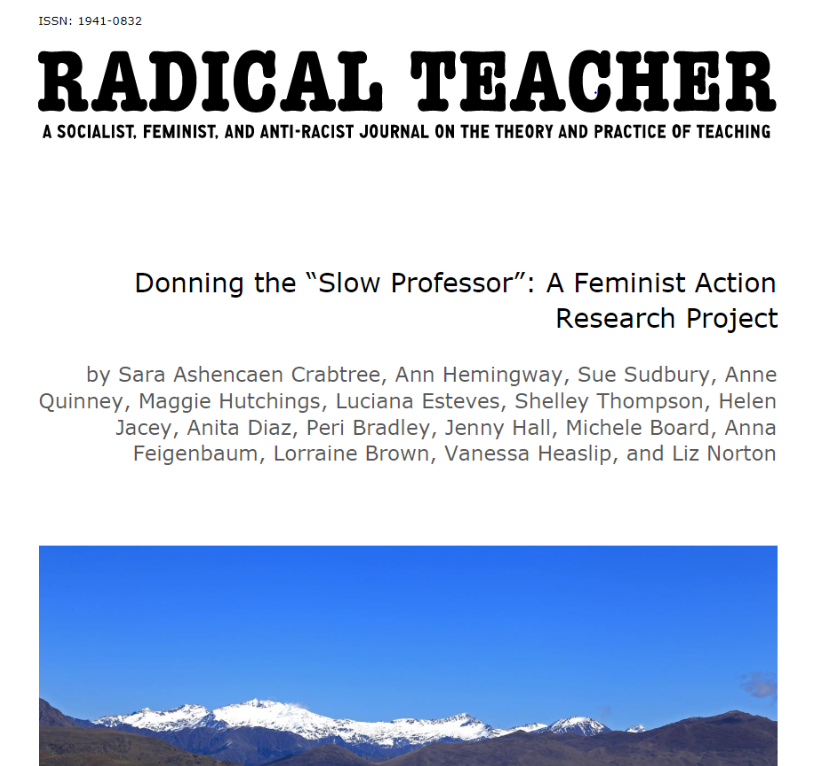
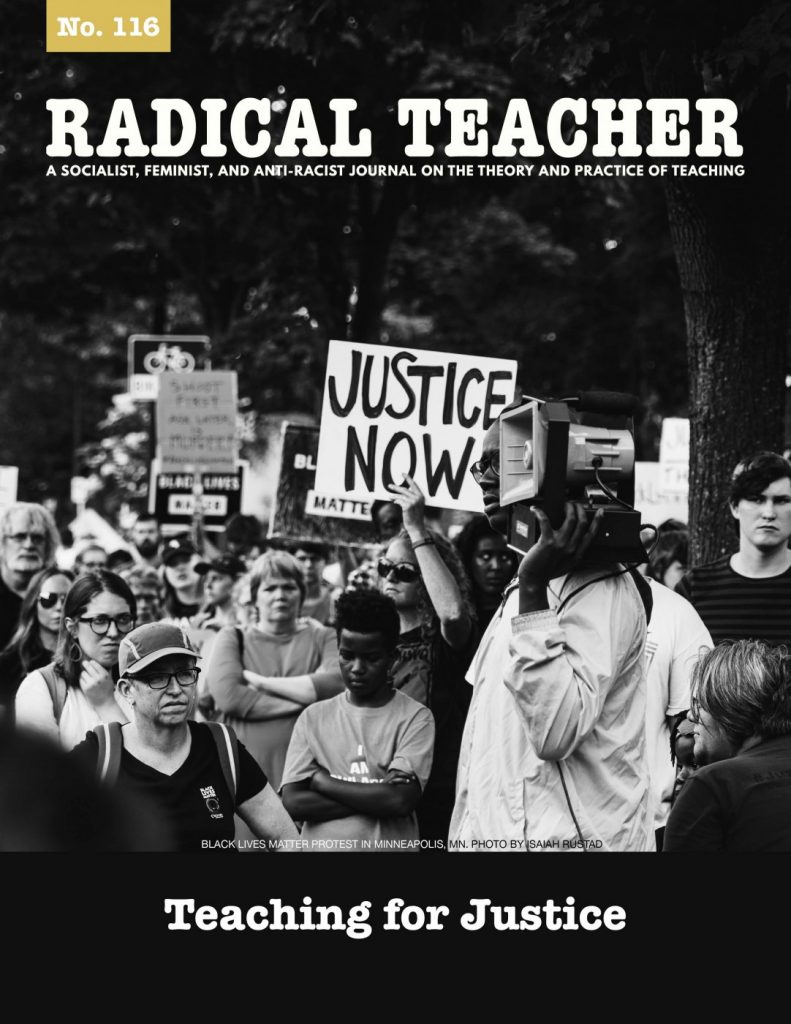





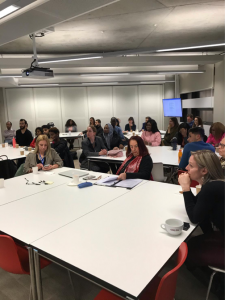
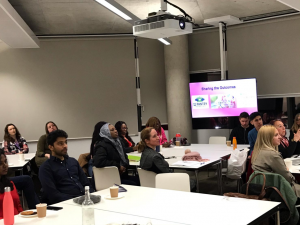
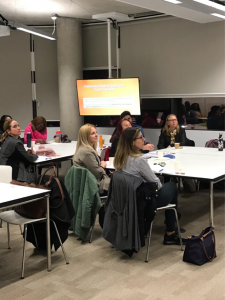

















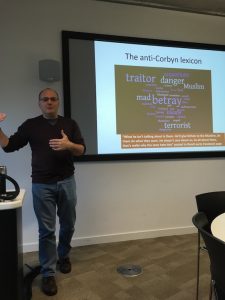



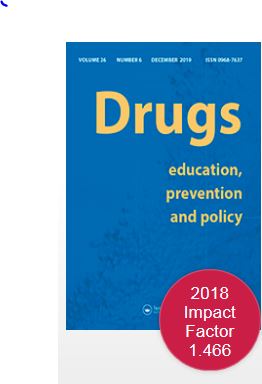

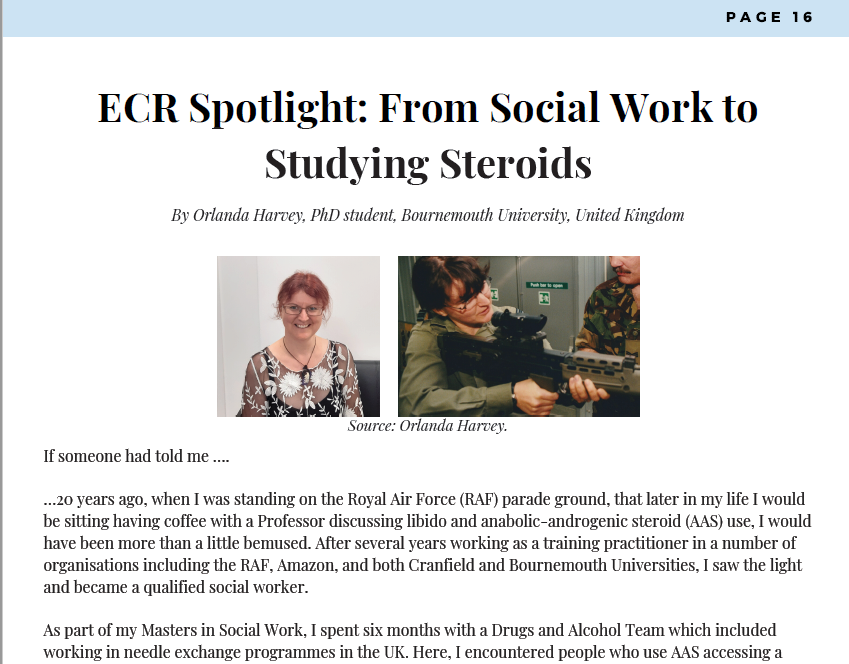














 New weight change BU paper
New weight change BU paper One week to go! | The 16th Annual Postgraduate Research Conference
One week to go! | The 16th Annual Postgraduate Research Conference Geography and Environmental Studies academics – would you like to get more involved in preparing our next REF submission?
Geography and Environmental Studies academics – would you like to get more involved in preparing our next REF submission? Congratulations to three former BU staff
Congratulations to three former BU staff Applications are now open for 2025 ESRC Postdoctoral Fellowships!
Applications are now open for 2025 ESRC Postdoctoral Fellowships! Horizon Europe – ERC CoG and MSCA SE webinars
Horizon Europe – ERC CoG and MSCA SE webinars ERC grants – series of webinars
ERC grants – series of webinars MaGMap: Mass Grave Mapping
MaGMap: Mass Grave Mapping Last reminder – MSCA Postdoctoral Fellowships 2024 internal deadline next week
Last reminder – MSCA Postdoctoral Fellowships 2024 internal deadline next week